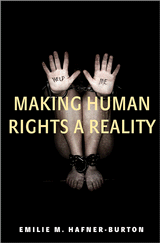O filósofo e professor emérito da USP, José Giannotti, escreveu uma introdução a nova edição de
O Capital, Uma parte dela foi adiantada pelo Sabático (Estado de São Paulo) na última semana. O primeiro livro da nova edição sai pela Boitempo no dia
21 de março.
José Arthur Giannotti
O primeiro volume d'O Capital - Crítica da Economia Política foi publicado em 1867, na Alemanha. Embora seu autor, Karl Marx, já tivesse emigrado para Londres em 1850, ele continuava a manter profundas relações com os alemães e os líderes dos movimentos operários que participavam das políticas revolucionárias espalhadas por toda a Europa.
O Capital não foi escrito com intenções meramente teóricas, não pretendia elaborar uma nova visão dos acontecimentos econômicos nem aspirava a ser mais uma notável publicação do mercado editorial: o que a obra pretendia era criticar um modo de produção da riqueza essencialmente ancorado no mercado, isto é, na troca de produtos sob a forma mercantil. Como é possível que uma troca que equalize produtos possa sistematicamente produzir excedente econômico? Criar tanto riqueza como pobreza? Em sua análise, Marx pretende mostrar que esse excedente provém da diferença entre o valor da força de trabalho e o valor que o trabalhador cria ao pô-la em movimento. Espera, assim, provar cientificamente a especificidade da exploração do trabalho pelo capital, inserida num modo de produção que leva ao extremo o tradicional conflito de classes que marca toda a história. No limite, esse conflito não teria condições de ser superado?
No entanto, se o livro desde logo é arma política, não é por isso que foge dos padrões mais rigorosos que regem as publicações universitárias. O fato de nem sempre ter sido bem acolhido pelos pensadores acadêmicos não quer dizer que sua composição e seus passos analíticos deixem de seguir uma metodologia rigorosa e cuidadosamente traçada, buscando uma nova interpretação que pudesse pôr em xeque o pensamento estabelecido.
Essa intenção crítica já se evidencia no subtítulo da obra. A economia política foi o primeiro esboço daquela ciência que hoje conhecemos sob o nome de economia. Como veremos, haverá uma ruptura de paradigma entre essa forma antiga e a nova, que a disciplina assume no século 20. Tal ciência nasce estudando como se constrói e se mantém a riqueza das nações, como se desenvolvem o comércio, o crédito, o juro, o sistema bancário, o imposto, o Estado e assim por diante. Lembremos que o Estado, como formação política separada da totalidade da polis, somente se configura de modo pleno no Ocidente a partir do Renascimento. De certo modo, a economia política é a primeira forma de pensar as relações de produção, o metabolismo do homem com a natureza - retomando a linguagem favorita do jovem Marx - que as desliga de intervenções políticas diretas. Note-se que o Estado sempre esteve presente no desenvolvimento capitalista, mas o mercado, principalmente na sua fase adulta, recusa essa interferência acreditando ser mais eficaz do que qualquer intervenção pública.

